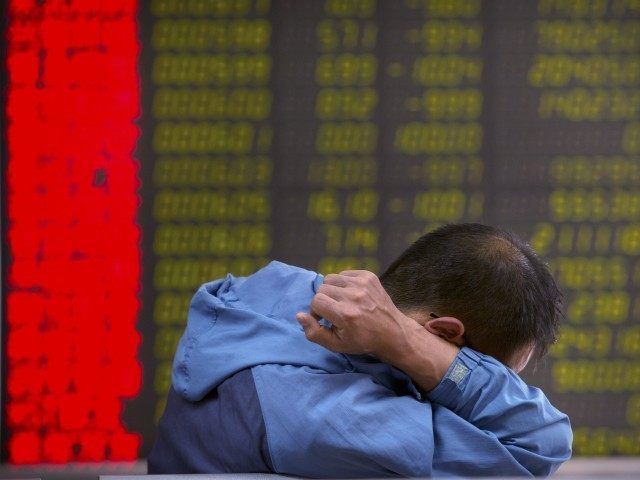You might think, as many investors do, that a loss of confidence in Beijing caused the Chinese market rout, but Beijing thinks you’ll find the real culprits along the banks of the Potomac.
According to central bank official Yao Yudong, it was the U.S. Federal Reserve’s monetary policies—specifically, the prospect of an impending rate hike—that caused turmoil in the global markets this week.
“Mr. Yao went further to ask FED to push back its rate hike plan, in order provide more time for the fragile markets to prepare,” writes the EconoTimes.
“In spite of showing calm, insiders say recent turmoil in financial markets have spooked Chinese officials over its devaluing of Yuan. So they are more likely to keep tight grip on Yuan in the near term,” the report continues. “According to officials, with devaluation, larger outflow from Chinese economy has baffled policymakers, which has further increased with rise in financial turmoil.”
The Economist, which is sticking with the catchy “Great Fall of China” name for the crisis, adds some weight to the theory that some of Monday’s panic was the result of automated trading systems processing dire inputs, instead of human traders stampeding, but says those inputs remain troubling even as the markets regain equilibrium heading into the weekend:
Rich-world markets have regained some of their poise. But three fears remain: that China’s economy is in deep trouble; that emerging markets are vulnerable to a full-blown crisis; and that the long rally in rich-world markets is over. Some aspects of these worries are overplayed and others are misplaced. Even so, this week’s panic contains the unnerving message that the malaise in the world economy is real.
Contrary to the claims from China’s central bank, the Economist says China is “the source of the contagion.”
Around $5 trillion has been wiped off global equity markets since the yuan devalued earlier this month. That shift, allied to a string of bad economic numbers and a botched official attempt to halt the slide in Chinese bourses, has fuelled fears that the world’s second-largest economy is heading for a hard landing. Exports have been falling. The stockmarket has lost more than 40% since peaking in June, a bigger drop than the dotcom bust.
Yet the doomsters go too far. The property market is far more important to China’s economy than the equity market is. Property fuels up to a quarter of GDP and its value underpins the banking system; in the past few months prices and transactions have both been healthier. China’s future lies with its shoppers, not its exporters, and services, incomes and consumption are resilient. If the worst happens, the central bank has plenty of room to loosen policy. After a cut in interest rates this week, the one-year rate still stands at 4.6%. The economy is slowing, but even 5% growth this year, the low end of reasonable estimates, would add more to world output than the 14% expansion China posted in 2007.
“China is not in crisis,” the Economist concludes. “However, its ability to evolve smoothly from a command to a market economy is in question as never before.” Which sounds like a crisis, actually, especially since it’s increasingly clear so much of the authoritarian regime’s reputation for competent economic stewardship was based on manipulated data. Also, if continued growth is expected, the point at which even fancifully-reported central planning can no longer deliver it is approaching. And if that growth is not forthcoming, China’s emerging-market resource vendors in the Third World are in big trouble.
The BBC has some further thoughts about how China’s authoritarians are more interested in finding scapegoats and banishing facts inconvenient to their “preordained script” than learning from a crisis and adjusting policy accordingly. In fact, even discussing the situation has gotten some people investigated and jailed.

COMMENTS
Please let us know if you're having issues with commenting.